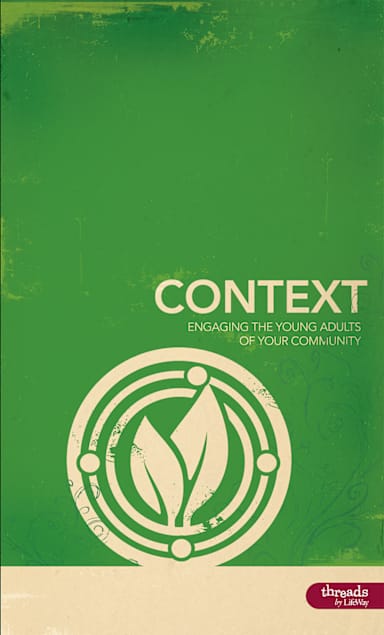We are living in an interesting time in history. For what is likely the first time in the history of the Christian church, generations aren't worshiping together. It now appears normal to see older generations meeting together wearing suits and singing hymns, boomers wearing Hawaiian shirts and singing peppy songs about how Jesus changed their lives, and emerging generations meeting in dark rooms singing in minor keys. But, from an historical perspective, this is not normal. Beyond that, it is ultimately harmful to the church.
Interestingly enough, it's not what young adults actually want, either. Far from a "leave us alone" mentality, today's young adults are very interested in learning from, interacting with, and forming bonds with previous generations. This desire for connection with people outside of their age demographic can be seen as a subset of the overall desire for relationships and community, but because of the specific and unique nature of these particular relationships, the characteristic of "connection" stands on its own. According to our research:
45 percent of unchurched young adults identified the opportunity to receive advice from people with similar life experiences as very important.
68 percent of churched young adults identified the opportunity to receive advice from people with similar life experiences as very important.
After seeing the statistics above and hearing the overwhelming voice of young adults regarding this matter, a couple of conclusions can be drawn, one very broad and one very specific:
Both churched and unchurched young adults desire a maximum number of small group activities that promote relationship and belonging.
Both churched and unchurched young adults desire a maximum number of opportunities to connect with a mentor.
Young adults place heavy value on connecting with people who have more life experience than they do. Some would call this mentoring or cross-generational ministry; the bottom line is that they want to learn from someone else's experiences.
Mentoring is a biblical idea. Although the word "mentor" itself is never used in Scripture, the principles applied when using that terminology are found throughout the biblical text. We see numerous examples of mentoring relationships taking place throughout the Bible. In some cases, individuals were involved in multiple mentoring relationships. Sometimes mentoring happened on a one-to-one basis, and in other cases, mentoring took place in a group setting. However, the group was always small enough to listen to, and interact with, each individual. Jesus mentored 12, sometimes three and, on rare occasions, one.
Jethro mentored Moses. Moses mentored Joshua and the elders of Israel. And Joshua mentored the other remaining leaders of his army.
Eli mentored Samuel. Samuel mentored Saul and David. Ahithophel and Nathan the prophet also mentored David. David became Israel's greatest king. David mentored his army commanders and government officials to establish the united nation of Israel. David also mentored Solomon. Solomon mentored the Queen of Sheba, who returned to her people with his wisdom in the form of Proverbs that applied God's laws.
Elijah mentored Elisha. Elisha mentored king Jehoash and others.
Daniel mentored Nebuchadnezzar, who humbled himself before God.
Mordecai mentored Esther. Esther mentored King Artaxerxes, which led to the liberation of God's people.
Priscilla and Aquila mentored Apollos, and this resulted in a much-improved ministry for Apollos.
And finally, Jesus mentored the twelve apostles who established the Christian church. The apostles mentored hundreds of other leaders, including Paul. Paul mentored Titus, Timothy, and many others. Timothy mentored "faithful men" such as Epaphras. Epaphras and the other faithful men mentored others also, which led to a chain reaction that resulted in dozens of new churches in Asia. Ultimately, this specific mentoring chain is the beginning point of our churches today.
These scriptural references aren't necessarily meant to show that young adults desire relationships of this nature because they want to follow the biblical model. However, emerging generations recognize almost naturally that they have a lot to learn, and the Bible affirms a relationship model that can be used to meet that need. Moreover, because they live with such an experiential interest in life, that learning process is most effective walking side-by-side with someone, rather than just sitting in a classroom.
Every young adult ministry has a setting—circumstances that surround it. Context is a handbook designed to help leaders determine where their ministry is—whether small or large, thriving or starting up—and where it has the potential to go. Using the spiritual markers of community, connection, responsibility, and depth, Context examines the challenges of young adult ministry and offers practical answers to some of the most frequently encountered issues. Context will help leaders develop a frame of reference and a plan of action that will equip them to grow their young adult ministry.
